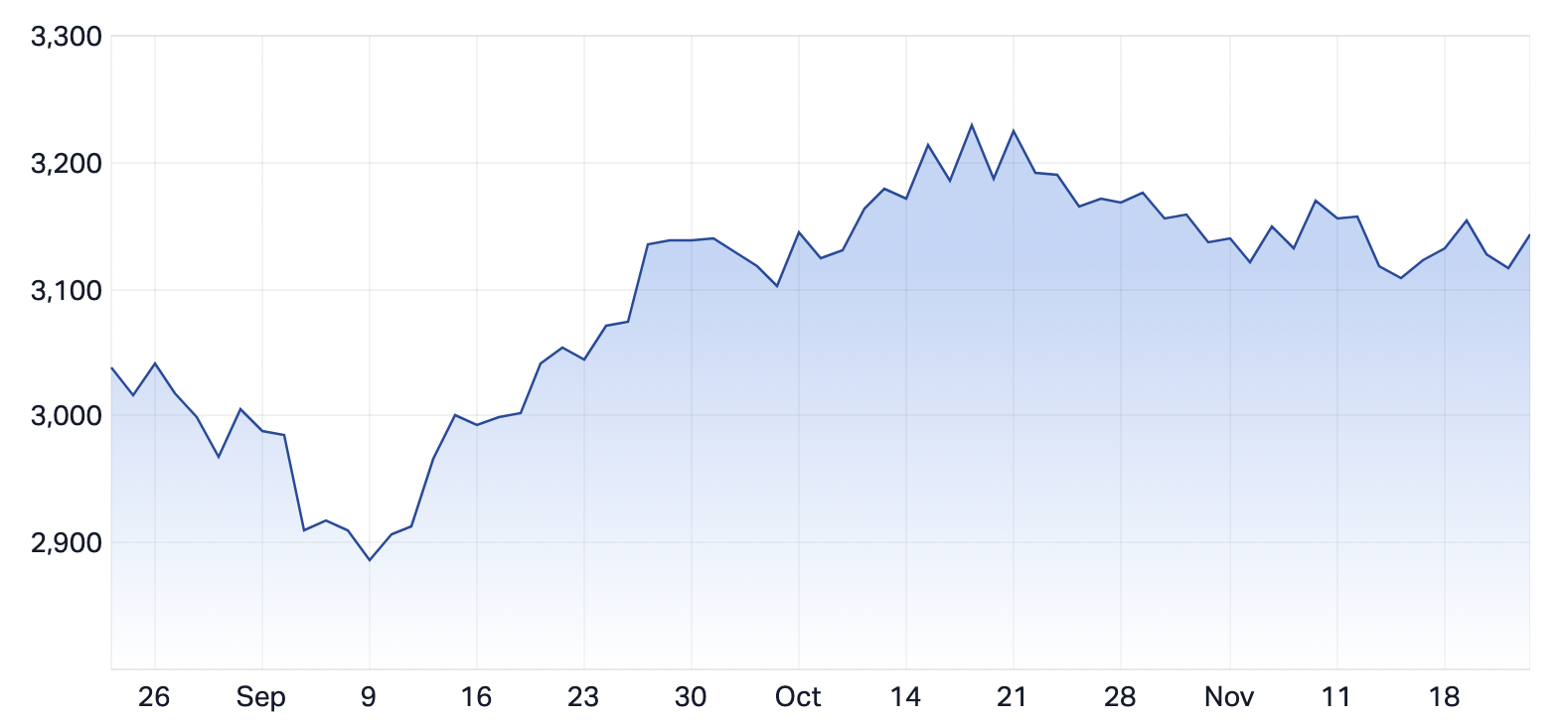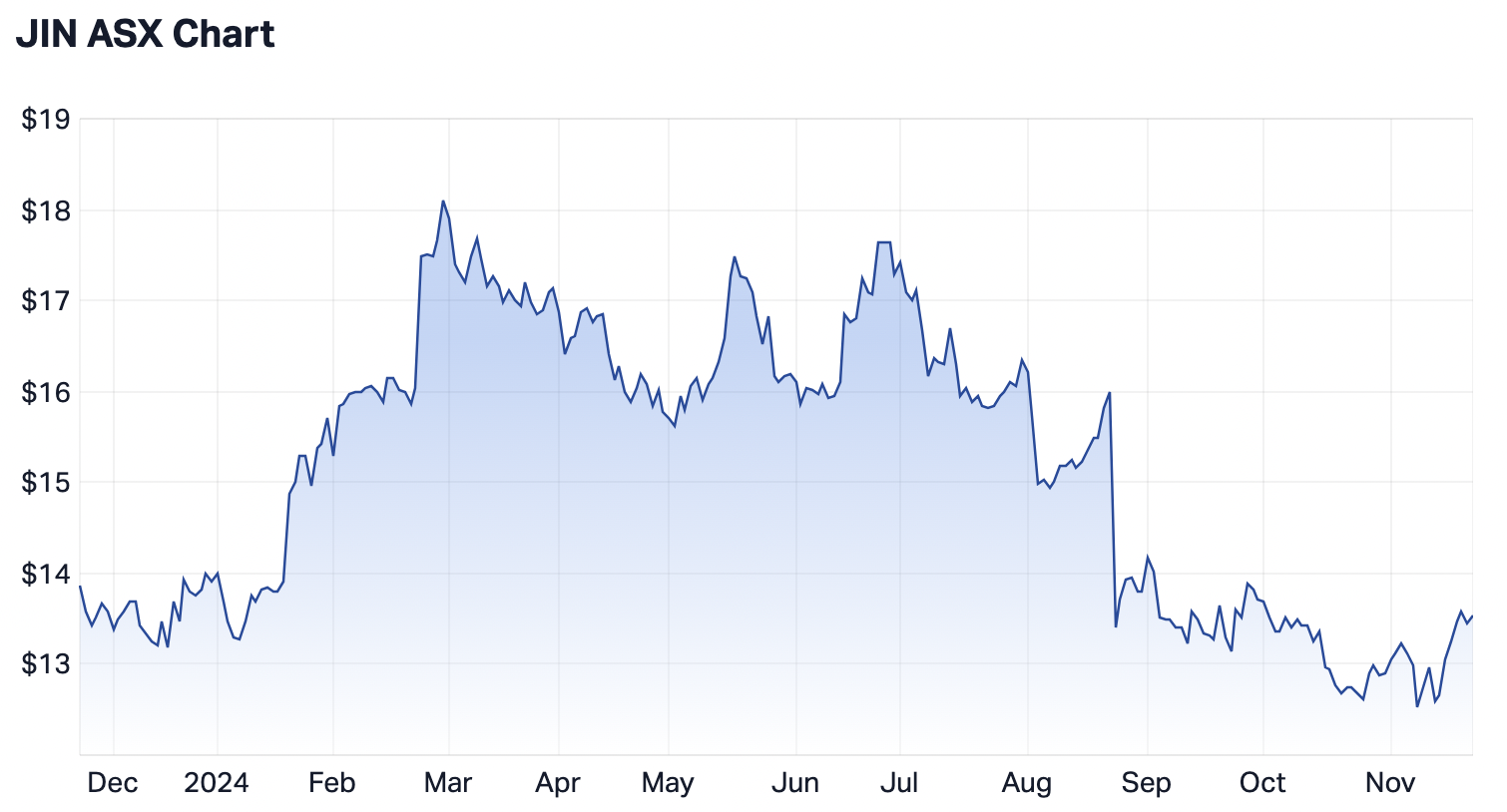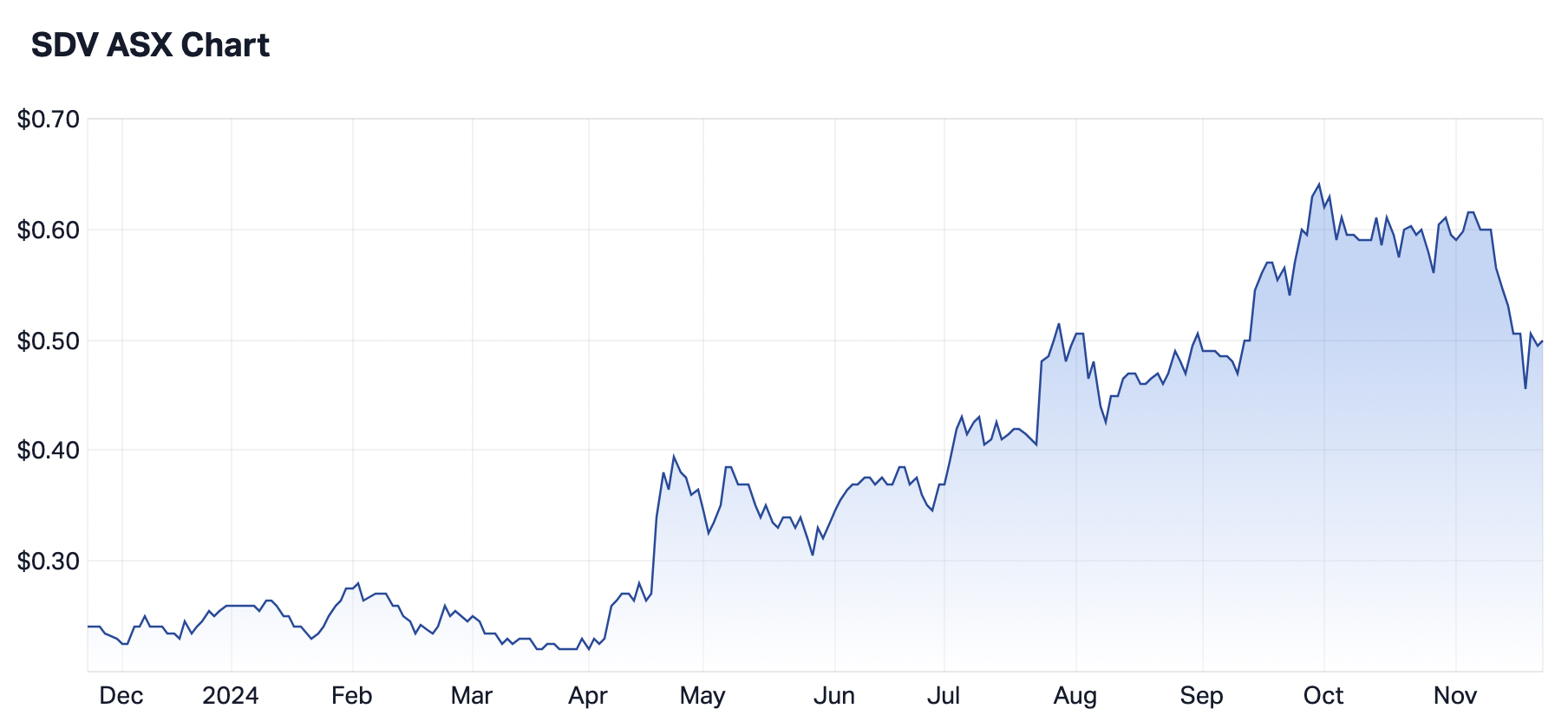Small caps: An election trump card for 2025?
After Donald Trump won the US election on November 5, stock markets rallied off the back of a perception that the President-elect would be good for the economy.
As a portfolio manager for Tyndall Asset Management’s Australian small-cap fund, I have closely watched the knock-on effects closer to home. In the US, the Russell Small Caps index has rallied, and this has flowed onto Australian small caps too. If you take out resources – which have been impacted by signs from China that I’ll discuss later – then the rest of the Australian small-cap market rose 4% following the election.

However, if I have one piece of advice for investors, it’s to try not to get too caught up in the headlines.
In my view, markets tend to pick a narrative that suits them at the time. There’s a perception that Trump will be good for corporate earnings, but there are other parts of the story, such as the risk of stimulus keeping inflation higher for longer and US Treasury yields going from 3.7 to 4.2 per cent, which has historically been seen as negative for equities.
I’m wary of believing one single narrative and instead maintain a ‘quality compass’ when picking investments. I think all investors should do the same.
The outlook for Australian small-caps
As we head towards 2025, my outlook for Australian small caps is positive – not just due to the election results, but a number of different factors.
Firstly, earnings growth for small caps is strong – forecast to be double that of large caps for the next two years. At the same time, smalls are trading at a 10 per cent discount to large caps. The discount is rarely this wide – in the past 25 years, the only time it surpassed this was during the depths of the GFC, and it only equalled this in the midst of COVID.
However, Australian small caps as a whole are in a much stronger position right now than at either of those times. Balance sheets are in better shape, and we are close to the start of the interest rate easing cycle. Small caps are the biggest beneficiary of lower interest rates because they're more correlated to the economic cycle, have lower pricing power, and have less access to debt markets.
Small caps offer cheaper valuations at a good point for them in the economic cycle – which makes them a fantastic place to be in 2025. What’s more, there's plenty of opportunity to find businesses with good fundamentals.
Finding opportunities in mispricing
As I mentioned, small caps as a cohort are mispriced, but there are some particular themes we’re following at the moment when finding value.
For example, we’re overweight the US consumer through large positions in Zip (ASX: ZIP) and Credit Corp (ASX: CCP). While we like both businesses on their individual merits, we are also attracted to their exposure to the lower end of the US consumer – Zip through buy now, pay later products for those that cannot access credit cards, and Credit Corp through those that have defaulted on credit cards.
We see value here because our view is that the market continues to underestimate the resilience of the US economy, to which both these businesses are highly leveraged.
On the other hand, we’re underweight resources, as we think the market went too far pinning their hopes on China’s stimulus. Now, President Xi Jinping has indicated he wants China’s economy led by consumption rather than large infrastructure projects because large infrastructure projects have historically led to a lot of empty residential and commercial space.
That said, given the recent underperformance of the resource sector in the last couple of months, pockets of value are beginning to emerge, and we'll probably start to close some of that underweight in select commodities in the near future.
Identifying quality
When it comes to specific stocks, I believe in finding quality companies that compound earnings and buying them at a discount to their intrinsic value.
One example is Jumbo Interactive (ASX: JIN), an online reseller of lottery tickets. Founder and CEO Mike Veverka is as enthusiastic about the business as he was when I first met him 15 years ago. They have cash on the balance sheet, and fantastic margins and operate in an environment where online lottery sales continue to grow much faster than bricks and mortar or retail sales. It's a business that can deliver low-double-digit earnings growth per annum into the medium term but is trading at a small discount to the market when it's traditionally traded at 20%premium because the current run of jackpots has been terrible. But in our view, the jackpots will eventually normalise and the stock will re-rate.

Another is SciDev (ASX: SDV), which has water treatment technology. This is a micro-cap stock that has barely any sell-side broker coverage, and its core business in providing friction reduction for oil and gas companies in the US will be a big winner given Trump is very pro-oil and gas. However, where we see material value that is under-appreciated by the market is their technology which can treat hazardous man-made chemicals known as Perfluoroalkyl and Polyfluoroalkyl Substances (PFAS).
PFAS are being recognised as potentially as dangerous as asbestos, and in the US they have passed legislation to mandate that by 2029 the level of PFAS in drinking water has to be reduced dramatically. That will create a US$250 billion market opportunity to test and remediate the issues of drinking water in the US alone.
At the moment, SciDev’s water treatment technology is 25 per cent of the business, but in my view, it'll be more than half the business in four years’ time. This is a business I think can grow to many times larger than its current size.

Conclusion
As you can see, there are plenty of opportunities to find value out there in small caps. We ask ourselves why the market has undervalued or sold off a stock. It might be because of a macroeconomic concern, or stock-specific risk, in which case we evaluate whether we agree with the market’s assessment or not. If we don’t, and we like the company, then it might be an opportunity.
However, as I said at the beginning, it’s important not to get too swept up in narratives around the election and whether it is good for stocks or not. I believe quality companies that can compound earnings growth are great investments, regardless of who is in power.

1 topic
4 stocks mentioned
1 fund mentioned

